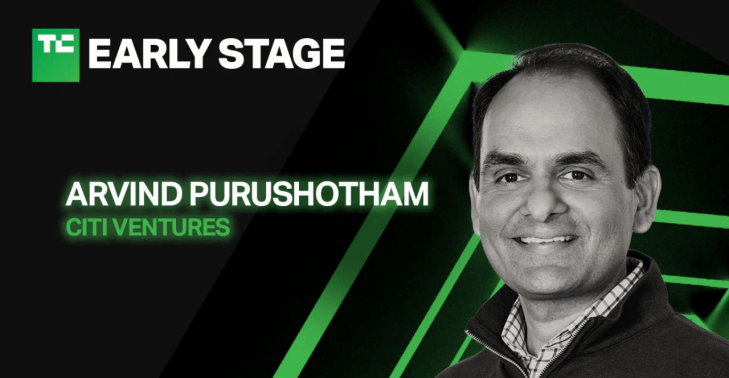At our recent Early Stage event, we had the opportunity to talk at length with Arvind Purushotham, the managing director and global head of Citi Ventures, about how startups should think about corporate venture arms, including what a check from an enterprise like Citi can mean, and how to leverage that kind of goliath once it’s already a financial partner.
For founders trying to understand the benefits and potential pitfalls of working with a corporate venture arm versus a more traditional venture team, it’s very much worth zipping through this discussion.
Among the many topics addressed, Purushotham gave us insight into how corporates have altered the way they work in recent years, driven by necessity. Unsurprisingly, he said that they’ve had to move faster in order to remain competitive. Still, owing to Citi’s already-in-place internal systems — involving risk and compliance teams and senior management — he insisted that moving faster mostly hasn’t been a problem.
Said Purushotham: “We have not had to wait for a second close or we’ve not had to request the company to do a second close. We’ve been able to close along with the rest of the the syndicate.”
Occasionally, he added, “we’ll have to ask for additional time. But I think it comes down to designing this process that actually takes into account how fast these things move,”one that seems to be working. At least, he said that this year has “been our busiest year yet. We’ve closed 25 investments in the first half, and 14 of them are new investments.” (Timestamp 3:32)
We covered a lot of other ground, too. We talked about the introductions that founders can expect an outfit like Citi Ventures to make to other departments of the bank as well as outside of it. (Timestamp: 12:43)
We discussed how the partners at Citi are compensated, given that founders want to be certain their venture backers have so-called skin in the game. (Timestamp: 16:13)
We also talked about whether Citi Ventures is price sensitive (Timestamp: 37:23), what’s interesting to Citi Ventures outside of fintech startups, (it’s doing more proptech investing, for example (timestamp: 25:06), and we talked about whether startups should be concerned that working with a company like Citi means not being able to work with its rival companies.
Said Purushotham: “We’ve been very open to working with the other banks, and, in fact, we have some great examples where we are co-investors in many of these companies with other banks. … I think the entrepreneurs sometimes over-interpret that [potential threat] and say, “Hey, if you’re sitting here, Wells Fargo can’t be involved, and vice versa. And most often that is not true; is it possible that it becomes true sometimes? It’s possible, but it’s very rare.” (Timestamp: 18:01)
It’s definitely worth checking out our full discussion if you’re curious about better understanding how corporate arms can think, how this one is structured, and how they can be leveraged once they are on your cap table. More below.
